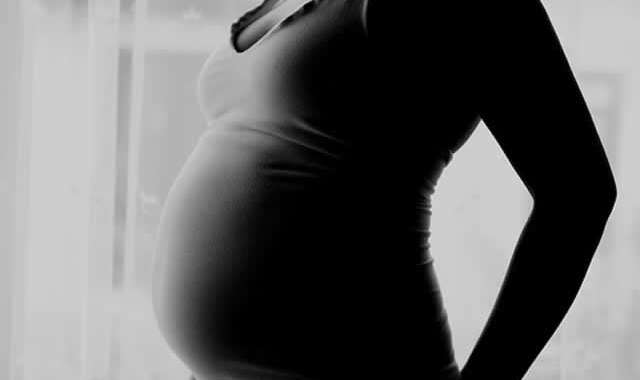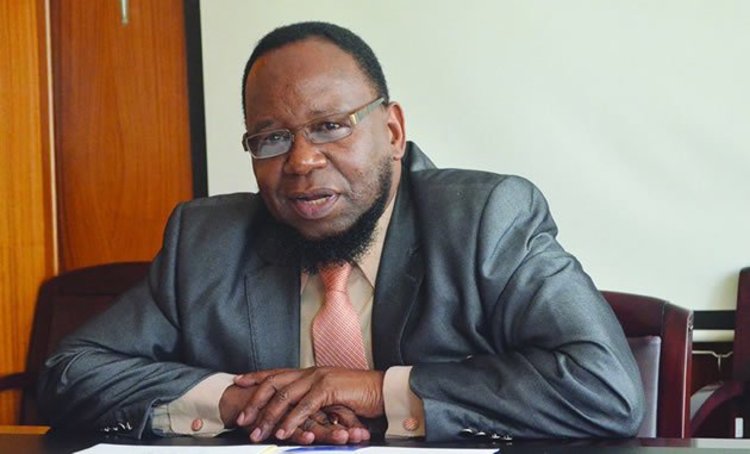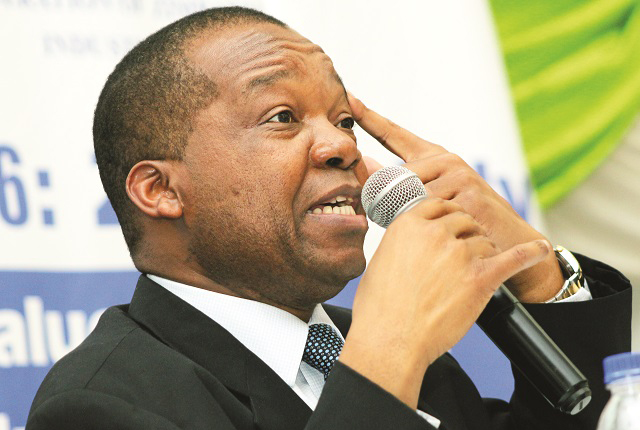4 500 Grade Seven pupils impregnated

 Zvamaida Murwira Senior Reporter—
Zvamaida Murwira Senior Reporter—
At least 4 500 Grade Seven pupils countrywide, the majority of them girls, dropped out of school this year after falling pregnant or getting married, Parliament heard on Thursday. Primary and Secondary Education Minister Dr Lazarus Dokora, however, told the National Assembly that the pupils were free to rejoin school at a later stage as young “mothers, wives, fathers or husbands”.
Presenting a Ministerial Statement in the National Assembly on Thursday, Dr Dokora said of the 329 549 candidates who wrote Grade Seven examinations this year, at least 4 500 would not proceed to Form One.
“A total of 305 549 will enrol in day secondary school with effect from Monday, 12th December, 2016. Sadly, 4 500 of our girls and boys will not be seeking Form 1 places in 2017, having regrettably left school owing to pregnancies and marriages,” said Dr Dokora.
“We have said in 2017, the ministry will inaugurate a campaign against early marriages working in conjunction with the Ministry of Women’s Affairs, Gender and Community Development, whose minister is Hon. (Nyasha) Chikwinya. So, we are also mounting a campaign. UNFPA have agreed to work with us and have already been in the field. So, we will heighten that,” said Dr Dokora.
The statement about the 4 500 school dropouts attracted a barrage of questions from legislators who wanted to know what policy framework Government would introduce to curb the scourge. Gweru Urban MP Mr Cecil Zvidzai (MDC-T) said he was concerned that the girls were preyed by unscrupulous people with “fat” pockets.
“The girls might have been taken advantage of by the rich, ‘sugar daddies’ and ‘sugar mummies’ and are going to be consigned into permanent poverty as a result of having been taken advantage of particularly at that early stage. I would have expected the minister to talk to us around how he is going to deal with these 4 500 unfortunate cases,” said Mr Zvidzai.
Matabeleland North MP Dr Ruth Labode (MDC-T) surprised the House when she proposed that pupils be given condoms saying according to the Demographic Health Survey, they were dying because of HIV/AIDS, abortion and early pregnancies.
“A Form 1 child, for me is aged around 12 years or 13 years, but what has happened here, these children were indulging in sex and this is confirmed by the Demographic Health Survey. For me, it raises a policy issue. What should we be doing Hon. Dokora? There is an issue here. We should allow these children to access health services; everything else that you access from the condom to everything. Let them access it because they are dying,” said Dr Labode.
In his response, Dr Dokora said the pupils could rejoin informal learning at a later stage.
“As to the 4 500 boys and girls that I made reference to, the boys left school to marry and the girls left school on account of pregnancy or to also get married. So, the way you treat that has to be differentiated. We have non-formal education stream and in this year, the statistics show that 28 000 have participated in the non-formal education sector. They can come back as young mothers and fathers/husbands and continue, not in the full-time programme but in the part-time educational programme. They are welcome,” said Dr Dokora.
He said Parliament was free to further interrogate on the prudence of giving pupils condoms or not. “As to whether this now leads to say give condoms in the schools, I think that is another debate and I would benefit from the wisdom of the House,” said Dr Dokora.








Comments